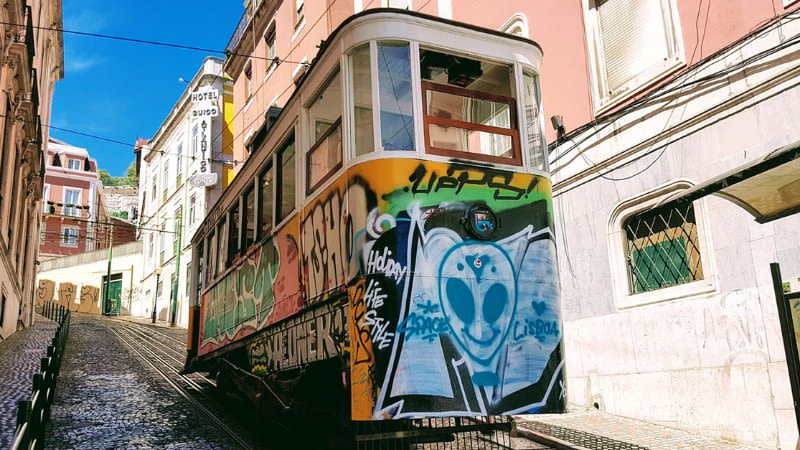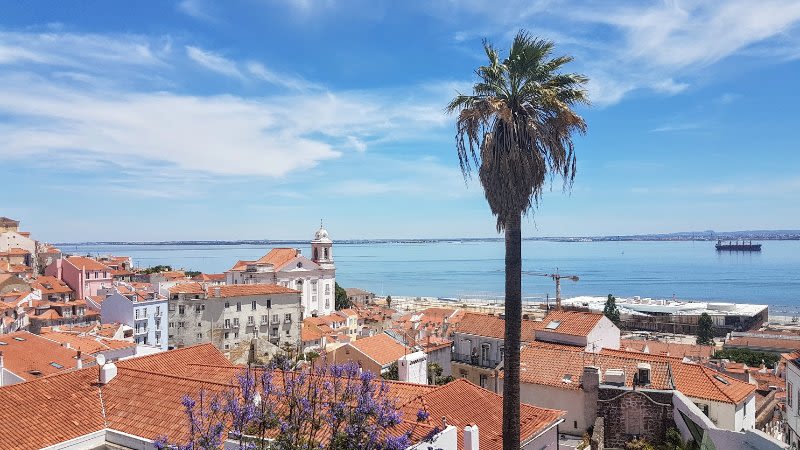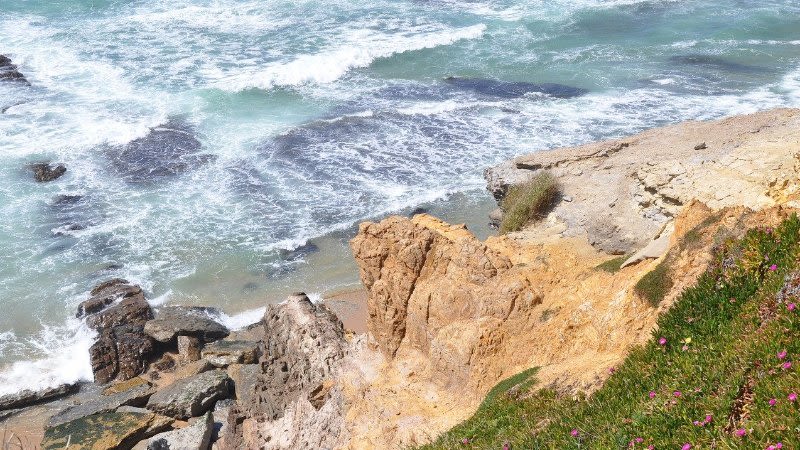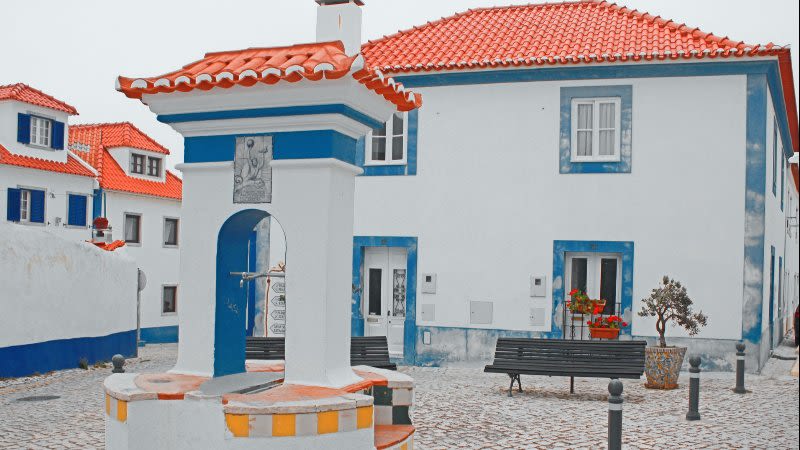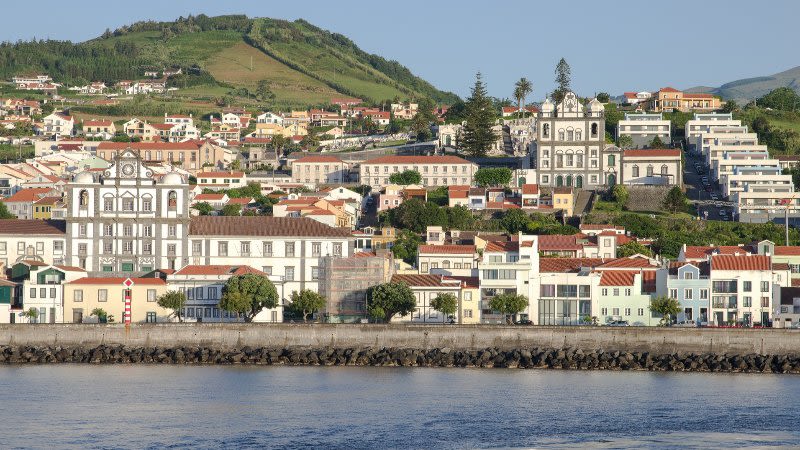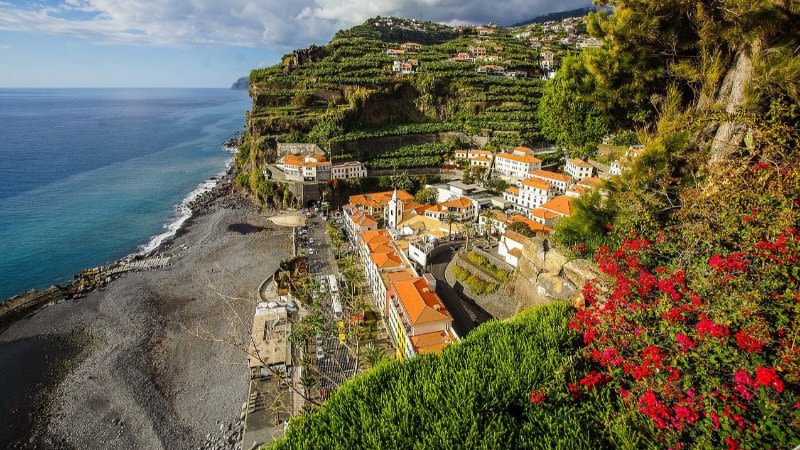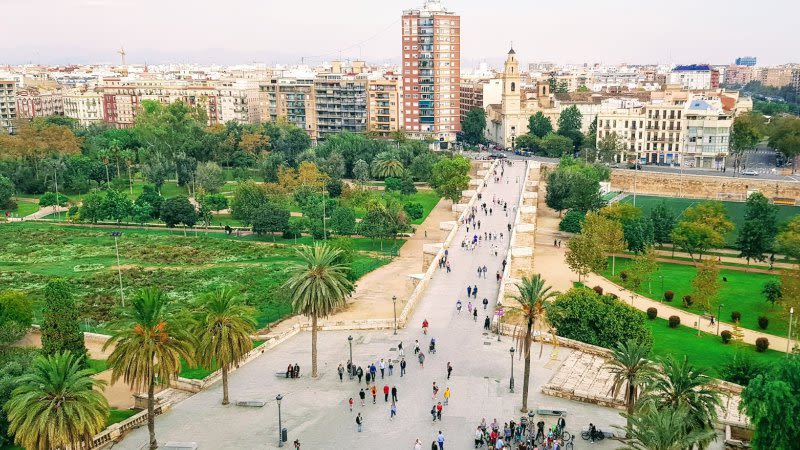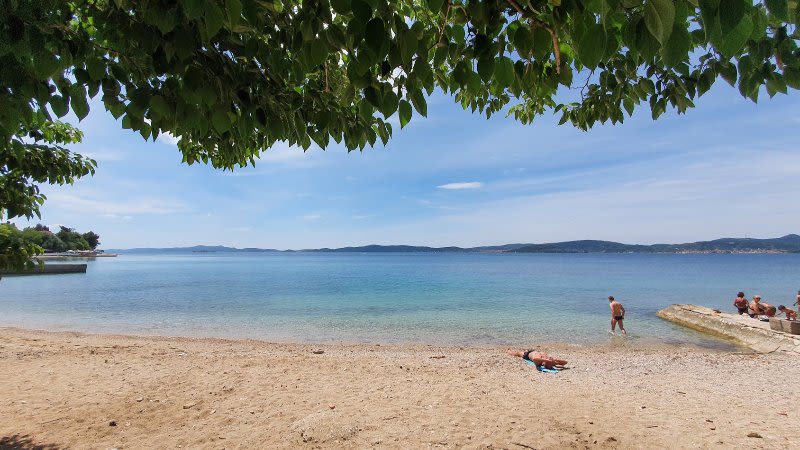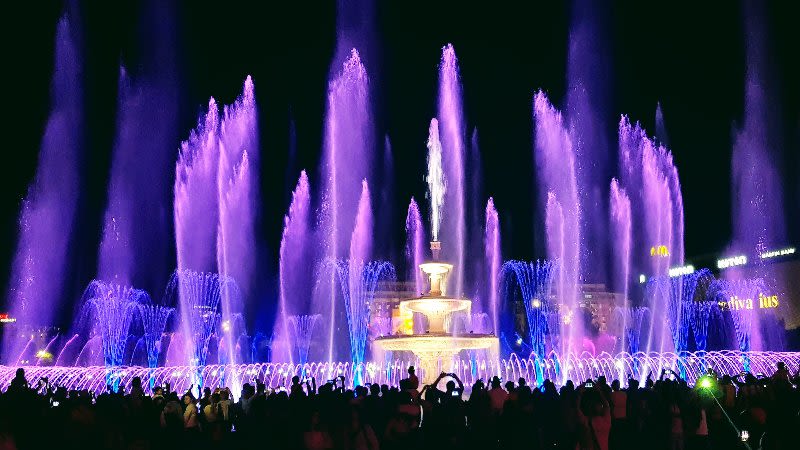Free Underground Tour in Lisbon: Rua dos Correeiros Archaeological Tour
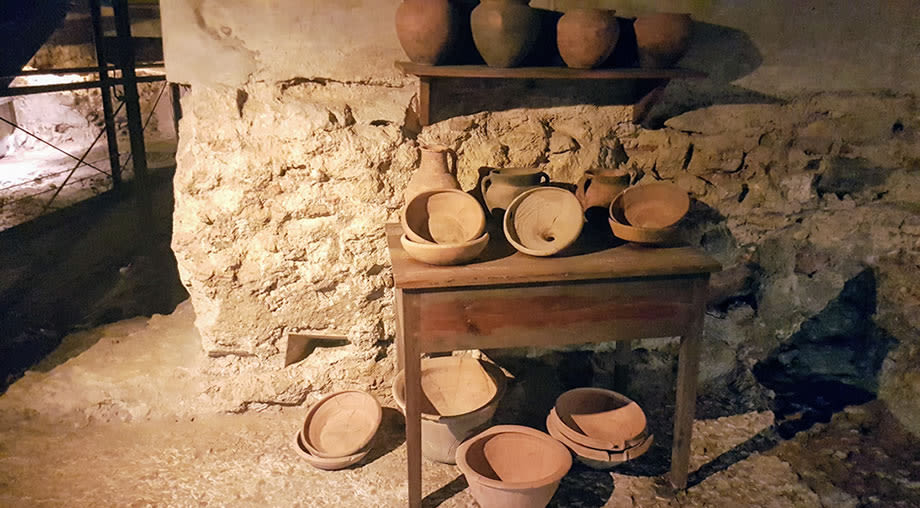
This tour is organized by the Millenium Bank Foundation and it’s very central in Lisbon, close to the Arch of Augustus in the Pombaline historical center.
Millenium Bank Lisbon Tour Info:
Address: Rua Augusta, 96 – Lisbon
Schedule: Monday to Saturday from 10 am to 12 am and from 2 pm to 5 pm
- The tours are guided
- Tours available in English or French
- Approximately 1 hour duration
- Exception: public holidays in Portugal
TIP: The name of the tour is a bit confusing, since the entrance is not actually in Rua dos Correeiros, but instead you go in through Rua Augusta – the parallel street to Rua dos Correeiros. The entrance is marked and each tour starts at the beginning of each hour.
Booking ahead for the Free Underground Tour in Lisbon
The groups that go in are small – around 10 to 15 people, due to the limited space underneath the building, so it gets full very easy.
You should book your place in advance, because during high season especially you can’t just show up at the door and go in. You need to go there a day early to book for the next day, or you could just go in the morning and reserve a spot for later that day.
You also have a contact phone number where you can call +351 21 113 1004 and an email address: fundacao [@] millenniumbcp.pt where you can write in order to book ahead.
See more info on the Millenium Bank Foundation website.
How the archeological structures were found and this tour came to life
Between 1991 and 1995 the bank had started renovation works on the building and that is when it found several archeological structures buried beneath its building. Since then they have adapted the space in order to allow access to tourists and you can visit the space daily as part of a free guided tour.
From the informative brochure of the tour we found out that 3 archeological campaigns were carried out here between 1991 and 1995, on a surface of 850 m2, at an average depth of 3,5 m, almost the equivalent of 3000 m3 of dirt excavated. Almost 20 archeologists helped during the project and 27 technicians assisted the works while they were carried out. It was an important project for this part of Lisbon and an example that financial success and culture can go hand in hand when there is will.
What you will see during the underground tour in Lisbon – The Roman Finds
Most of the structures seen during the tour date from the Roman period and they are part of a fish sauce factory – the fish tanks where they used to make the sauce. There’s also visible part of the owner’s home, where you can see a section of an old Roman flooring, probably a unique sight in Lisbon.
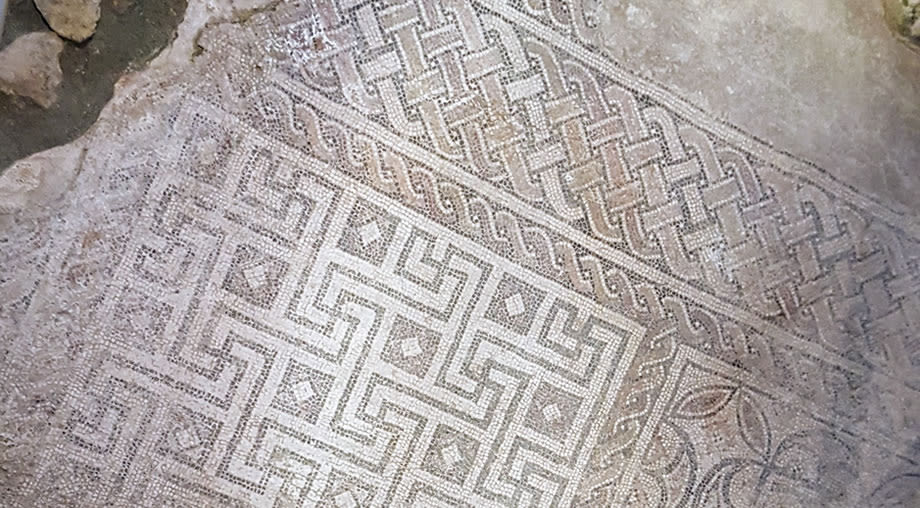
The abundant remains of Roman ceramics recovered on the site consists of characteristic building materials, coarse ware, terra sigillata, lamps and amphorae. Most of the ceramics were manufactured in the potteries on the Tagus estuary.
Also from the Roman period, you can see a burial site that was discovered during the excavations; the body was of a man around the age of 35 - 40, which was considered old at the time, due to the much shorter life expectancy. His lower limbs were found stretched out and parallel to each other and unfortunately, during the digging works, part of the remains were crushed.
On display you can see as well several Roman coins from the Late Empire.
The Islamic occupation of Lisbon
Downtown Lisbon remained unoccupied during the first stage of the Islamic occupation, but starting from the 9th century a new community developed on the riverside, which was outside the city walls at that time.
The actual site of the bank building where the tour is held was at that time right by the riverside, so most of this new developed zone was related to trade and docking activities.
Among the ceramics recovered you can see coarse and painted kitchenware as well as glazed vessels.
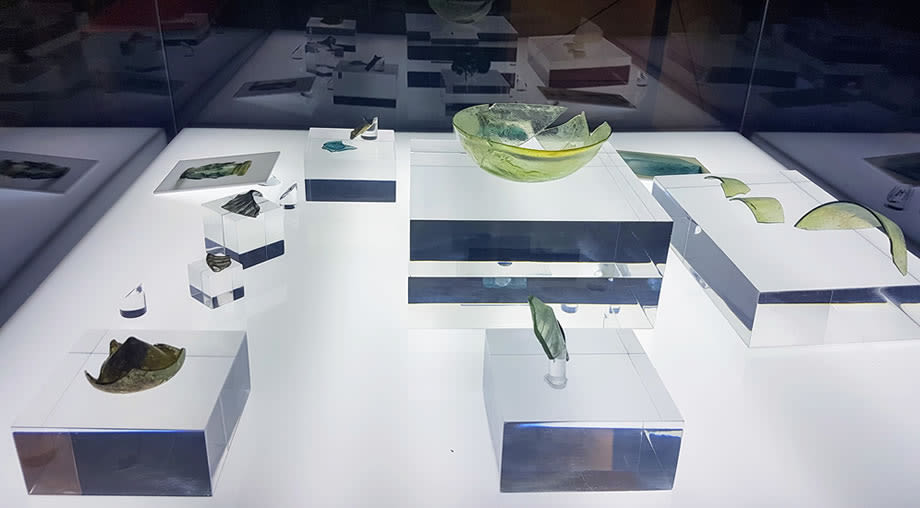
The event that changed Lisbon forever – the great earthquake of 1755
On the 1st of November 1755 there was a huge earthquake in Lisbon, that destroyed almost the entire city – most buildings that remained standing are found in Alfama, which is today Lisbon’s oldest neighborhood. The earthquake was followed by a huge fire, due to the fact that the event had happened on Sunday morning, a day when most people when at church and many candles were lit. Most of the buildings in Lisbon at that time were built from wood, so the fire spread easily from one house to another, making it impossible to stop. It’s said that people at that time believed that they were being punished by God and that’s why they were being hit by one disaster after the other.
Lisbon was completely destroyed after the earthquake and the fire, everything from houses, roads and sanitation networks were either knocked down or burnt to ashes. During the excavations works under the bank's building the archeologists found a layer of rubble, ashes and burnt wood so it was easy to know which layer belonged to what period of time.
The entire city had to be rebuilt and so many remains from previous buildings can still be found underneath the buildings that we see today, like the Millenium bank building. After the earthquake disaster people became concerned and they designed the new city taking anti-seismic precautions such as using a structure of wooden piles serving as a base for the foundation.
Should you include the Rua dos Correeiros Archaeological Tour in your plan to visit Lisbon?
Definitely!
The tour is extremely informative and interesting and the guides are friendly, they speak great English and they can offer you info about the Roman and Islamic period in Lisbon.
This is a nice way to discover a part of the city’s history and it’s one of the best free things to do in Lisbon. Just remember to book ahead of time, especially if you only have a short amount of time to spend in Lisbon.
